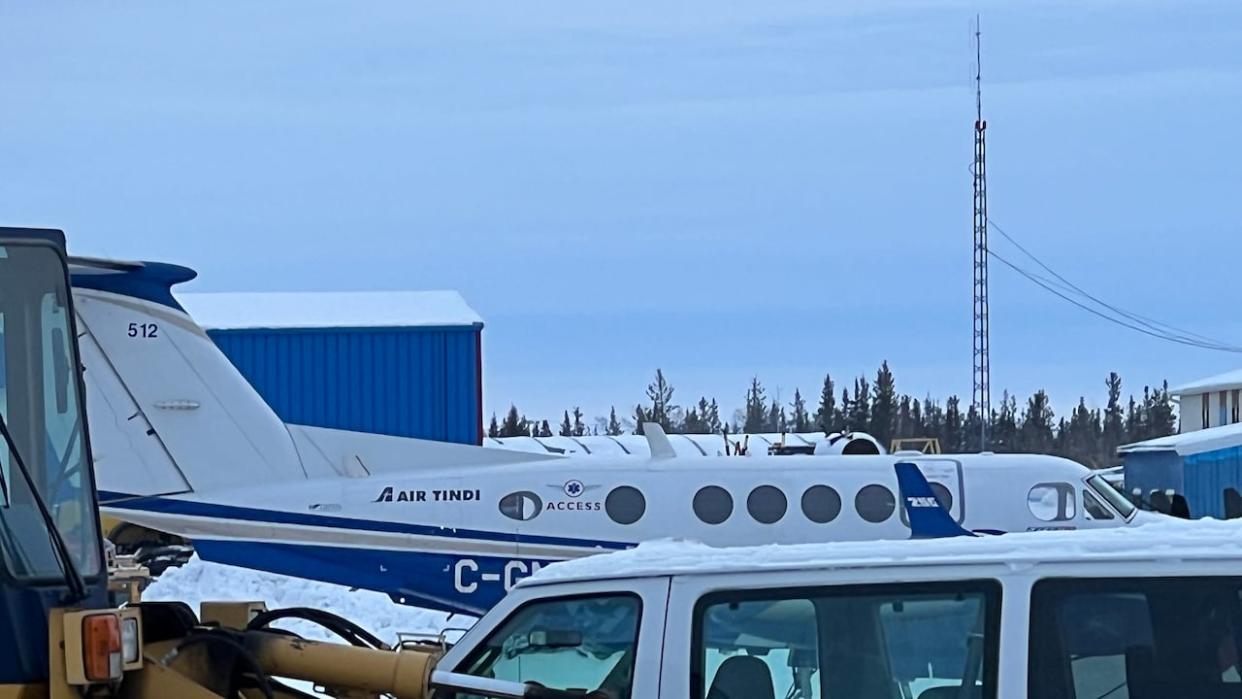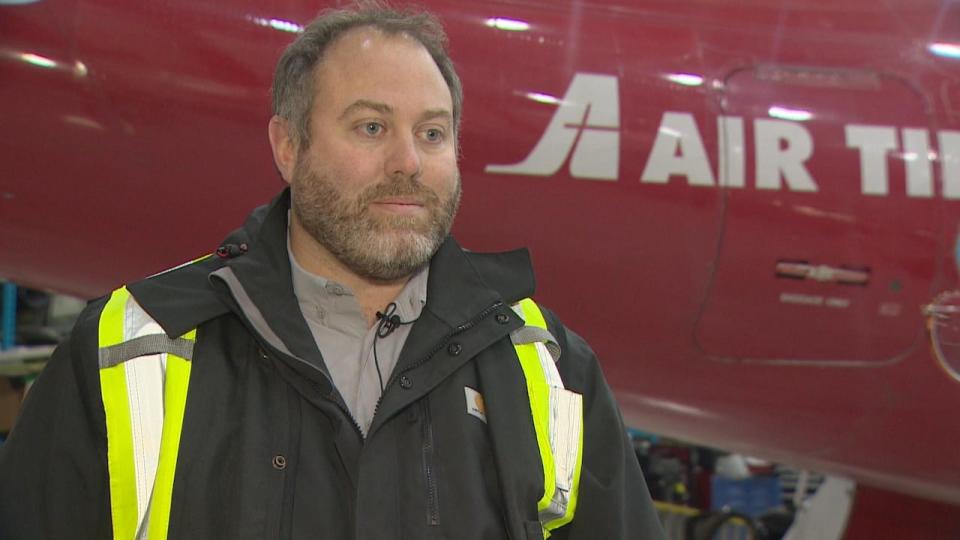Passengers and crew arrive in Yellowknife after rescue from plane crash site

Ten people who were aboard an Air Tindi plane that crashed about 300 kilometres northeast of Yellowknife have been safely rescued. They flew with their rescuers into the N.W.T. capital Thursday afternoon.
They have been transported to the hospital by ambulance or shuttles for medical assessments, Air Tindi president Chris Reynolds said.
Both Air Tindi and the Transportation Safety Board of Canada (TSB) will investigate the crash.
Reynolds said he had a brief conversation with the plane's crew once they arrived back in Yellowknife.
"They looked cold and they looked tired, really just exhausted," he said. "Definitely a long, long night."
The Twin Otter plane, which was on skis, went down Wednesday with no warning about 16 kilometres southeast of the Diavik diamond mine. It was carrying eight passengers and two crew members at the time.
The cause of the crash is not yet known.
Rescue efforts continued through the night and into Thursday morning. By 1 p.m. MT, all 10 people had been safely extracted and taken to the nearby Diavik mine, according to David Lavallee, public affairs officer for 1 Canadian Air Division and Canadian NORAD Region Headquarters. They flew to Yellowknife from there.
Lavallee said earlier Thursday that six of the people were assessed as having minor injuries, while two had "moderate to serious" injuries but were improving.
Afternoon crash in bad weather
The privately chartered flight went down in the area of the Diavik diamond mine camp at 12:45 MT Wednesday, but wasn't carrying passengers to or from the camp, according to Reynolds.
"We were taken by surprise. There was no warning that it was going to happen. So we're just not sure what happened," he said Wednesday night.
In an email, Diavik spokesperson Simon Letendre said four members of the mine's emergency response team had headed for the crash site on snowmobiles with survival and medical equipment to help with the rescue effort. They arrived around 9 p.m.
The mine also made its airstrip available, Letendre said.
Air Tindi specializes in flying to remote parts of the North and has been in operation since 1988. Its fleet includes six Twin Otter planes and several others of different models. According to its website it operates daily scheduled flights, Air Ambulance services, and chartered flights catered to tourists or the needs of people working in mining and government.

Chris Reynolds is the president of Air Tindi. (Travis Burke/CBC)
As the afternoon wore on, military search and rescue were dispatched to the site where passengers and crew took shelter, and the airline's own aircraft also worked to get to the group.
Reynolds said those involved knew exactly where the passengers and crew were sheltered thanks to satellite tracking and another plane that was able to fly over the area and spot them.
At the time, he said the weather was quite poor with strong winds and blowing snow, making it harder for rescue crews to close in on the site.
Overnight in winter — with the help of a Herc
Wednesday night, Lavallee said a Royal Canadian Air Force CC-130 Hercules was on its way to the site from 17 Wing Winnipeg.
Search and rescue technicians parachuted in with supplies and equipment around 8:40 p.m., roughly eight hours after the plane crashed. They'd had to circle overhead for nearly two hours as wind gusts reached past 60 kilometres per hour.
Reynolds said those hours before the search and rescue technicians arrived would have been "very scary" for those on board the plane.
"They were in a tent that was from the survival gear of the aircraft, and they had blankets to keep warm and everything," he said. "But with 50+ kilometre winds, that's not enough."
The search and rescue crews brought heated tents with them.
Next steps
Reynolds said it's too soon to know why the plane went down. Air Tindi will be working with TSB on the investigation.
"It won't be a quick process, but it will be thorough," he said, noting that timeline could take a year or so.
In an email, TSB spokesperson Hugo Fontaine said it is gathering information. It had to wait for the rescue mission to finish before taking further steps.
Fontaine said TSB investigates "when there is a high probability that it can advance transportation safety and reduce risks to persons, property or the environment."
Reynolds said Air Tindi will do an internal investigation as well, which will be quicker.
"We can talk to the flight crew, right? We can get it from them and see what happened," he said. "We can look at the weather and see, if it was weather related, what can be done to prevent that — and just the root cause behind it all."
He said recovery of the aircraft will happen at some point.


